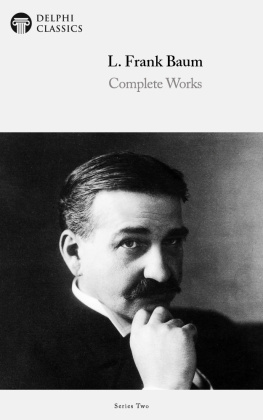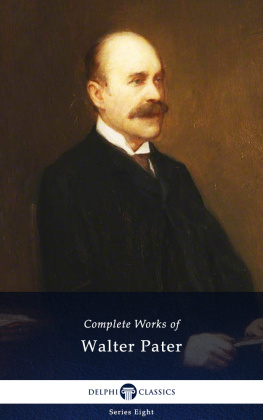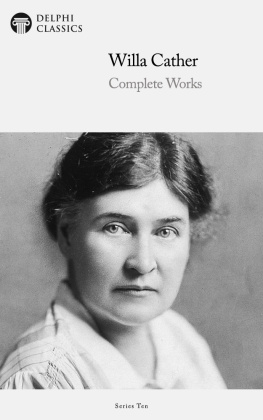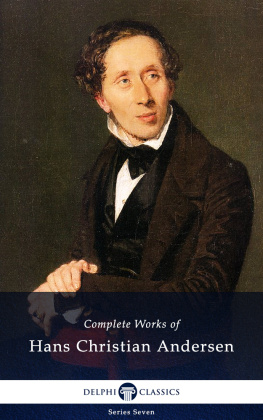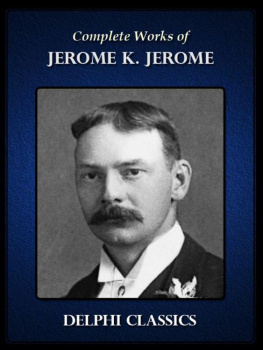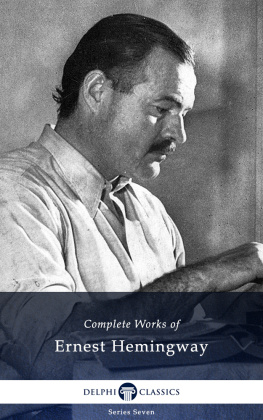The Complete Works of
SAKI
(1870-1916)

Contents

Delphi Classics 2016
Version 1

The Complete Works of
HECTOR HUGH MUNRO,
SAKI

By Delphi Classics, 2016
COPYRIGHT
Complete Works of Saki
First published in the United Kingdom in 2016 by Delphi Classics.
Delphi Classics, 2016.
All rights reserved. No part of this publication may be reproduced, stored in a retrieval system, or transmitted, in any form or by any means, without the prior permission in writing of the publisher, nor be otherwise circulated in any form other than that in which it is published.
Delphi Classics
is an imprint of
Delphi Publishing Ltd
Hastings, East Sussex
United Kingdom
Contact: sales@delphiclassics.com
www.delphiclassics.com
Parts Edition Now Available!

Love reading Saki ?
Did you know you can now purchase the Delphi Classics Parts Edition of this author and enjoy all the novels, plays, non-fiction books and other works as individual eBooks? Now, you can select and read individual novels etc. and know precisely where you are in an eBook. You will also be able to manage space better on your eReading devices.

The Parts Edition is only available direct from the Delphi Classics website.
For more information about this exciting new format and to try free Parts Edition downloads , please visit this link .
The Novels

The main street of Sittwe, the capital of Rakhine State, Myanmar. Hector Hugh Munro, known by the pen name Saki, was born in Akyab (modern day Sittwe), British Burma in 1870.

The coastline at Sittwe.
THE UNBEARABLE BASSINGTON

Hector Hugh Munro, now known as Saki, was born in Akyab, British Burma, which was then still part of the British Raj and governed from Calcutta under the authority of the Viceroy of India. He was the son of Charles Augustus Munro, an Inspector General for the Indian Imperial Police, by his marriage to Mary Frances Mercer, the daughter of Rear Admiral Samuel Mercer. Charles Munro soon sent his children, including two-year-old Hector, home to England, where they were brought up by their grandmother and aunts in a strict and puritanical household.
The young Hector was educated at Pencarwick School in Exmouth and then as a boarder at Bedford School. In 1893 he followed his father into the Indian Imperial Police and was posted to Burma. However, two years later, having contracted malaria, he resigned and returned to England.
Munro started his writing career as a journalist for newspapers such as the Westminster Gazette , the Daily Express , the Morning Post , and magazines such as The Bystander and Outlook . From 1902 to 1908 Munro worked as a foreign correspondent for the Morning Post in the Balkans, Warsaw, Russia and Paris. He then gave up foreign reporting and settled in London. Many of his stories from this period feature Reginald and Clovis, young men-about-town who take mischievous delight in the discomfort or downfall of their conventional, pretentious elders.
It is believed the pen name Saki is a reference to the cupbearer in the Rubiyt of Omar Khayyam, a poem mentioned disparagingly by the eponymous character in Munros Reginald on Christmas Presents and alluded to in a few other stories. Nevertheless, Saki may also be a reference to the South American monkey of that name, which is described as a small, long-tailed monkey from the Western Hemisphere and forms a central character in the tale The Remoulding of Groby Lington .
Following the success of his Reginald stories, Munro published his first novel The Unbearable Bassington in 1912, which assumes the same tone and humour of the short stories for which the author had become well-known. The narrative concerns Comus Bassington, another upper class young man possessing a cynical outlook on life, whose antics are irresponsible and his behaviour ungrateful. Francesca Bassington, Comus mother, tirelessly works to finds a means to occupy the wayward son, from a job as a secretary to an advantageous marriage, only for Comus to spoil each attempt by his selfishness and unwillingness to be guided by anyone. In time, the mother relies upon a last desperate plan to dispatch him to the colonies.

Munro, close to the time of publication, 1913
CONTENTS
AUTHORS NOTE
This story has no moral.
If it points out an evil at any rate it suggests no remedy.
CHAPTER I
Francesca Bassington sat in the drawing-room of her house in Blue Street, W., regaling herself and her estimable brother Henry with China tea and small cress sandwiches. The meal was of that elegant proportion which, while ministering sympathetically to the desires of the moment, is happily reminiscent of a satisfactory luncheon and blessedly expectant of an elaborate dinner to come.
In her younger days Francesca had been known as the beautiful Miss Greech; at forty, although much of the original beauty remained, she was just dear Francesca Bassington. No one would have dreamed of calling her sweet, but a good many people who scarcely knew her were punctilious about putting in the dear.
Her enemies, in their honester moments, would have admitted that she was svelte and knew how to dress, but they would have agreed with her friends in asserting that she had no soul. When ones friends and enemies agree on any particular point they are usually wrong. Francesca herself, if pressed in an unguarded moment to describe her soul, would probably have described her drawing-room. Not that she would have considered that the one had stamped the impress of its character on the other, so that close scrutiny might reveal its outstanding features, and even suggest its hidden places, but because she might have dimly recognised that her drawing-room was her soul.
Francesca was one of those women towards whom Fate appears to have the best intentions and never to carry them into practice. With the advantages put at her disposal she might have been expected to command a more than average share of feminine happiness. So many of the things that make for fretfulness, disappointment and discouragement in a womans life were removed from her path that she might well have been considered the fortunate Miss Greech, or later, lucky Francesca Bassington. And she was not of the perverse band of those who make a rock-garden of their souls by dragging into them all the stoney griefs and unclaimed troubles they can find lying around them. Francesca loved the smooth ways and pleasant places of life; she liked not merely to look on the bright side of things but to live there and stay there. And the fact that things had, at one time and another, gone badly with her and cheated her of some of her early illusions made her cling the closer to such good fortune as remained to her now that she seemed to have reached a calmer period of her life. To undiscriminating friends she appeared in the guise of a rather selfish woman, but it was merely the selfishness of one who had seen the happy and unhappy sides of life and wished to enjoy to the utmost what was left to her of the former. The vicissitudes of fortune had not soured her, but they had perhaps narrowed her in the sense of making her concentrate much of her sympathies on things that immediately pleased and amused her, or that recalled and perpetuated the pleasing and successful incidents of other days. And it was her drawing-room in particular that enshrined the memorials or tokens of past and present happiness.
Next page



